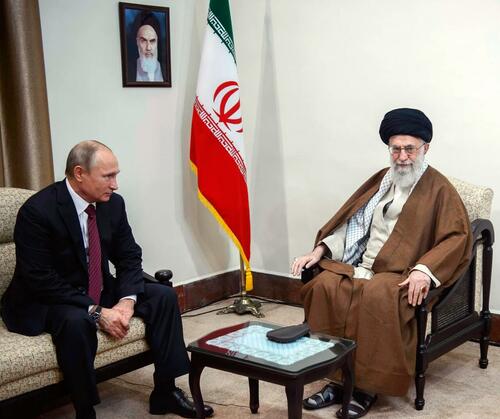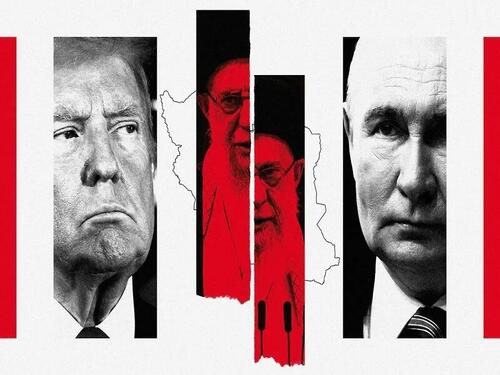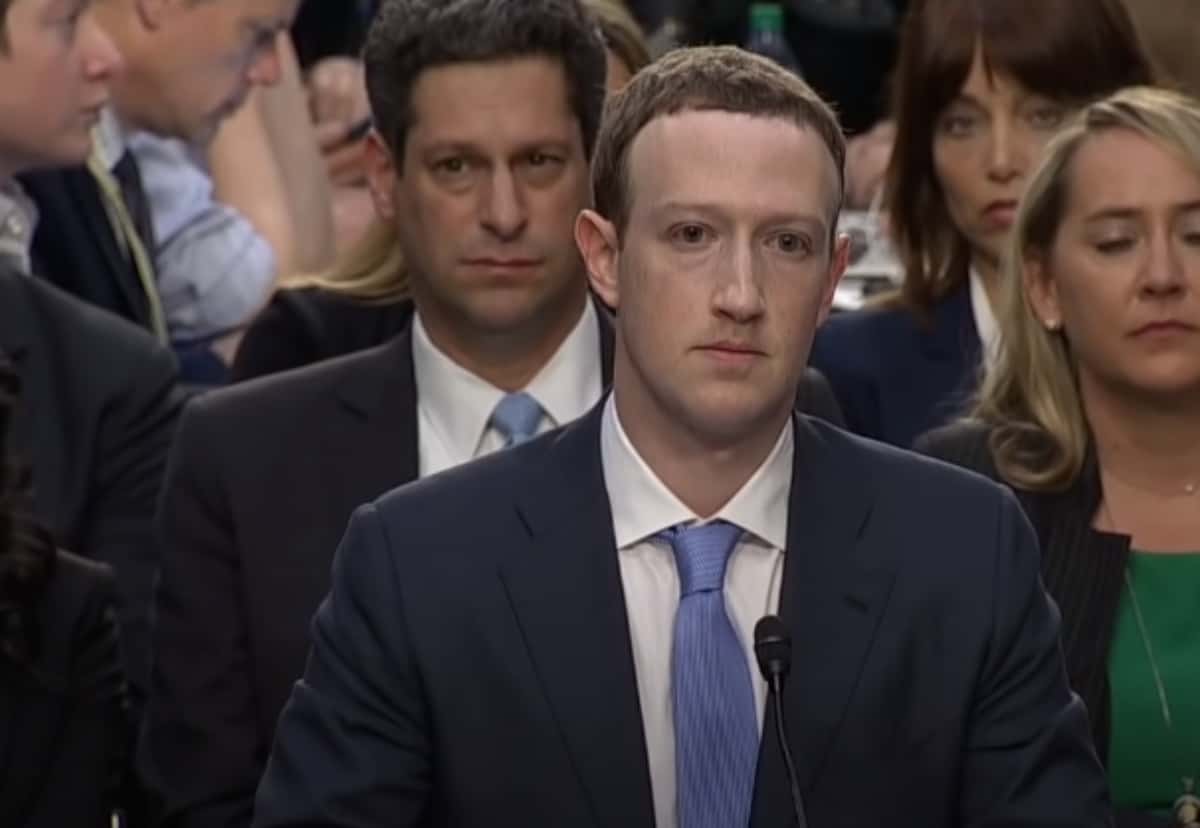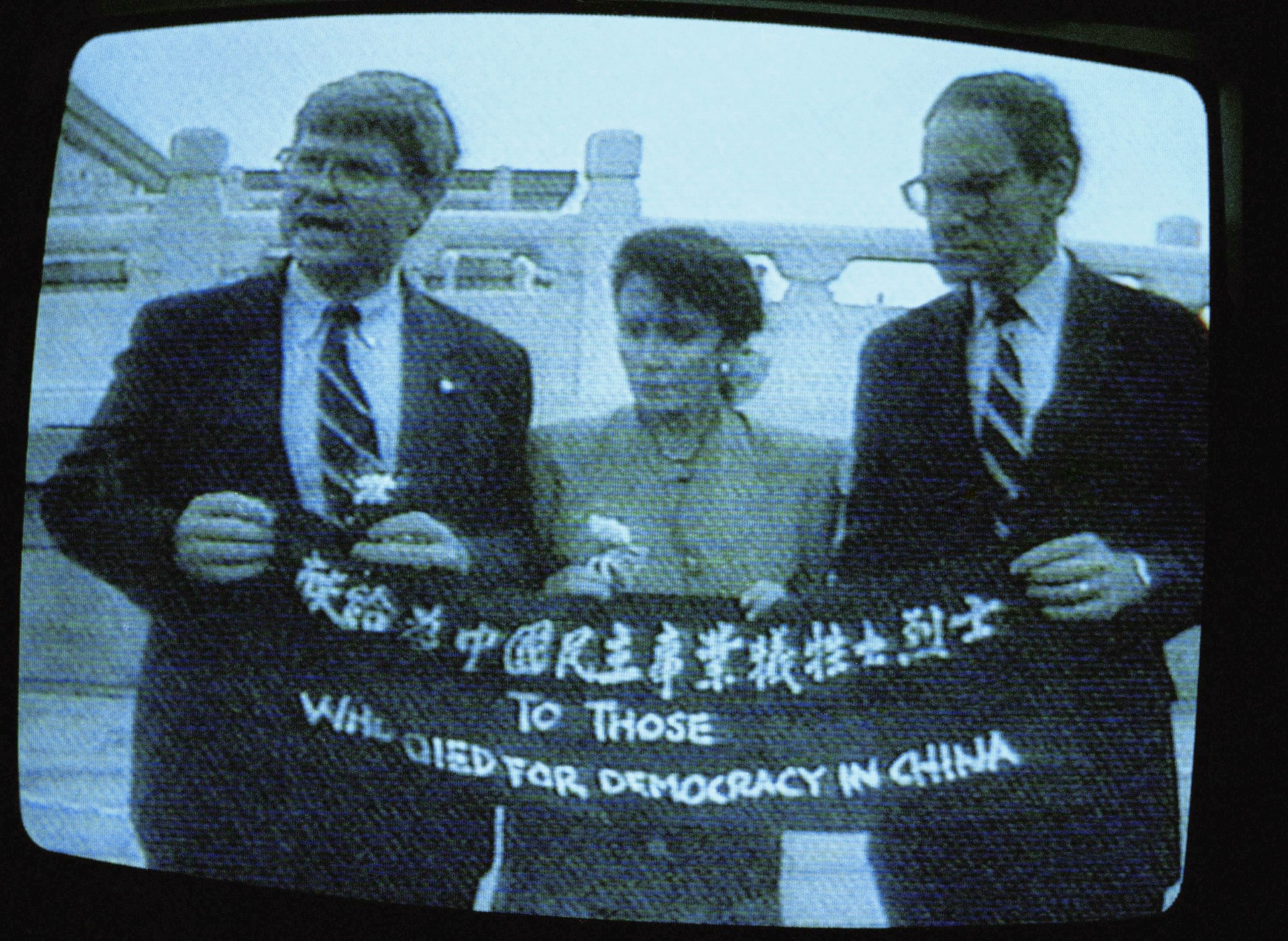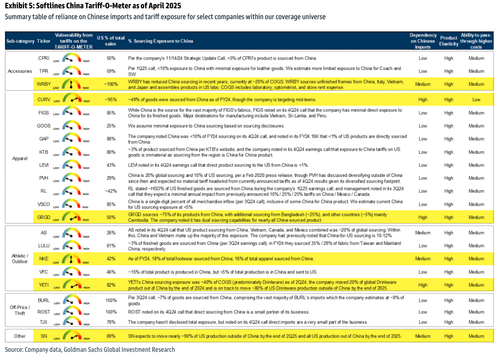Tune into a special edition of NewsWare’s Trade Talk with Trading Anchor Bill Olsen and Steve Hill, CEO of AIQ Systems. Our experts offer sector based insights and analysis on what happened in Q1 and what to look ahead for in Q2. Want to learn more about AIQ Systems? Visit www.AIQsystems.com.
Month: April 2025
Oil prices tumble more than 5% after China tariff retaliation
This is a developing story.. check back for updates.
The post Oil prices tumble more than 5% after China tariff retaliation appeared first on Insider Paper.
Russia Warns Against US Strikes On Iran Nuclear Sites: ‘Catastrophic & Illegal’
Russia Warns Against US Strikes On Iran Nuclear Sites: ‘Catastrophic & Illegal’
Via The Cradle
The Russian Foreign Ministry warned on Thursday that US threats of attack against Iran are “unacceptable” and could result in a “catastrophe”.
“The use of military force by Iran’s opponents in the context of the settlement is illegal and unacceptable. Threats from outside to bomb Iran’s nuclear infrastructure facilities will inevitably lead to an irreversible global catastrophe. These threats are simply unacceptable,” Foreign Ministry spokeswoman Maria Zakharova said.
Russian Deputy Foreign Minister Sergei Ryabkov also told Life magazine that the “consequences of this, especially if there are strikes on the nuclear infrastructure, could be catastrophic for the entire region.”
Kremlin Pool via AP
Russia and the US have recently held talks on ending the war in Ukraine. Ryabkov said these talks have not resulted in a breakthrough.
Regarding tension between Tehran and Washington, Ryabkov said Russia “condemns US threats.” The Russian Foreign Ministry comes after US President Donald Trump renewed his threat to attack Iranian nuclear facilities.
“If they don’t make a deal, there will be bombing. But there’s a chance that if they don’t make a deal, that I will do secondary tariffs on them like I did four years ago,” the president said on Sunday. Iran issued a formal complaint to the UN Security Council and said it would respond to any threat.
Trump had sent a letter to Iranian leadership in early March, threatening an attack if Tehran did not come to the negotiating table. Iranian officials said they would not negotiate under threats and economic sanctions, which Trump has imposed with full force as part of his “maximum pressure” policy.
This week, Iran’s Foreign Minister Abbas Araghchi said Tehran has officially responded to Trump’s letter signaling a willingness for indirect talks, which the US is reportedly considering.
However, Washington is simultaneously beefing up its forces in the region in preparation for a potential attack. This follows several reports over the past two months that Israel is planning to strike at the Iranian nuclear program.
Iran’s Deputy Foreign Minister Majid Takht Ravachi held talks on the nuclear issue with Ryabkov on Wednesday.
“The sides stressed the illegality and inadmissibility of the use of military force by Iran’s opponents to resolve disagreements and the unacceptability of threats from the outside to bomb Iran’s nuclear energy infrastructure, as this will inevitably lead to large-scale and irreversible radiological and humanitarian consequences for the entire Middle East region and the world as a whole,” the Russian Foreign Ministry said.
Satellite imagery from earlier today by @IndoPacWatch shows 6 B-2 “Spirit” Long-Range Strategic Stealth Bombers with the 509th Bomb Wing, on the tarmac at Naval Support Facility Diego Garcia in the Indian Ocean, a little more than 2,000 miles away from Iran. pic.twitter.com/divXs4o9kb
— OSINTdefender (@sentdefender) April 1, 2025
China, Russia, and Iran released a joint statement on March 14 demanding an end to “unlawful” US sanctions against the Islamic Republic after meetings in Beijing between the three countries.
Tehran insists that its nuclear program is entirely peaceful, in line with a religious fatwa against weapons of mass destruction, as well as the…
‘I Don’t Really Want Them Here’: Scott Jennings Angers CNN Panelists By Defending President Trump’s Mass Arrests Of Gang Members
by Susan Duclos, All News Pipeline: CNN senior political commentator Scott Jennings visibly irked his fellow panelists Monday as he defended the identifications and mass deportations of illegal criminal gang members. The media has suggested that President Donald Trump may have unintentionally deported innocent people who have body art and insignia that include symbols associated […]
Iran Lacks The Leverage For A Fair Deal With The US
Iran Lacks The Leverage For A Fair Deal With The US
Authored by Andrew Korybko via Substack,
It’ll therefore either have to accept a lopsided one or prepare for a major war that it might lose.
Iranian-US tensions are boiling after Trump threatened to bomb Iran following its rejection of direct talks over a new nuclear deal. He also ordered the Pentagon to move six B-2 stealth bombers, which CNN assessed to be a full 30% of the US’ stealth bomber fleet, to the Indian Ocean island of Diego Garcia. The Iranian Supreme Leader responded by promising strong retaliation if the US attacks while one of his chief advisors warned that their country would then have “no choice” but to build nukes if that happens.
Although the US Intelligence Community’s latest Annual Threat Assessment claimed that “Iran is not building a nuclear weapon”, there have been long-standing concerns that it could quickly do so if the decision is made due to its nuclear program allegedly have a rapid breakout potential. This makes it no different in principle than Japan’s, which could begin churning out nukes in a matter of months, but neither the US nor its regional allies consider Japan to be a threat, unlike how they view Iran.
The US’ renewed bombing campaign against Iran’s Houthi allies in Yemen might have been partially intended to send a message to the Islamic Republic aimed at getting it to enter direct talks over this issue by signaling that Trump 2.0 does indeed have the political will to initiate military action if it refuses. Despite Iran’s recent rejection of his demand, Trump might still hold off on this for now due to the likelihood that Iran could inflict unacceptable retaliatory damage to the US’ regional bases and allies.
Furthermore, diplomacy hasn’t yet been exhausted since Iran didn’t reject indirect talks of the kind that Russia offered to mediate after reportedly being asked by the US to do so, which was discussed here. Therefore, it would be premature for the US to seriously consider bombing Iran at this time, yet that option isn’t off the table if indirect talks fail to reach a deal. Iran lacks the leverage for a fair deal with the US, however, so it’ll either have to accept a lopsided one or prepare for a major war that it might lose.
Iran is a proud civilization-state that’s loath to subordinate itself to anyone, hence the difficulty in getting it to agree to drastic curbs on its nuclear energy program that would enshrine its status as a second-class country in this regard, all while abandoning any chance of nuclear weapons in the future. From Iran’s perspective, this could embolden Israel into one day launching a large-scale conventional or even nuclear war against it, which Iran believes has only hitherto been deterred by dangling this Damocles’ sword.
That said, while Iran could inflict unacceptable retaliatory damage to the US’ regional bases and allies (first of all Israel) if it’s attacked over its refusal to agree to a Russian-mediated lopsided deal, it cannot inflict such damage to the US’ nuclear triad and would thus likely…
Zuckerberg repeats Trump visits in bid to settle antitrust case
Meta boss Mark Zuckerberg has made repeated visits to the White House as he tries to persuade US President Donald Trump to settle a major antitrust case before it goes to trial on April 14, US media reported. The case against Meta was filed in 2020 by the Federal Trade Commission and seeks to prove […]
The post Zuckerberg repeats Trump visits in bid to settle antitrust case appeared first on Insider Paper.
Watch: Pelosi in 1996 Assails U.S. Free Trade with China: ‘Is This Reciprocal?’
In 1996, on the House floor, Rep. Nancy Pelosi (D-CA) assailed a then-bipartisan plan to give Most Favored Nation (MFN) trade status to China, arguing that while the U.S. has low tariffs on China-made goods, China has high tariffs on American goods.
The post Watch: Nancy Pelosi in 1996 Assails U.S. Free Trade with China: ‘Is This Reciprocal?’ appeared first on Breitbart.
Will Hoarders Spark Run On Imported Goods? These Are The Most-Exposed US Retailers
Will Hoarders Spark Run On Imported Goods? These Are The Most-Exposed US Retailers
Ahead of President Trump’s “Liberation Day” tariff rollout on Wednesday afternoon—particularly the 25% tariff on vehicles and auto parts imported into the U.S.—reports surfaced last week of consumers rushing to dealerships to purchase vehicles already on the lot, as those would be exempt from the new levies. We suspect that if consumers are willing to flock to auto dealerships, they’re probably just as willing to stock up on their favorite Chinese-made products before the next round of tariffs takes effect this weekend and next Wednesday.
Tariffs on Chinese goods are set to increase by 34% next Wednesday, on top of the existing 20%, bringing the effective rate to 54%. This will significantly impact companies heavily reliant on Chinese manufacturing (and other Asian countries), forcing them to absorb the cost or pass it on to consumers—setting the stage for sticker shock.
Goldman analysts Brooke Roach, Kate McShane, and others earlier today provided clients with a breakdown of Trump’s reciprocal tariffs:
On April 2nd, President Trump announced reciprocal tariffs. This includes a 10% tariff increase on all countries (excluding Mexico and Canada) and a higher rate of increase on select countries with trade deficits, set to take effect on April 5th and April 9th, respectively.
We believe the most material impact to our retail coverage from the announcement is the increase in tariffs on key sourcing partners for retail such as Vietnam, Indonesia, Bangladesh, and Cambodia.
China: Tariffs on China move to 54% (a 34% increase vs. the 20% tariff already in effect).
Tariffs broadened to key sourcing partners: Tariffs on other key sourcing partners for U.S. retail are set to be implemented, including Vietnam (46%), Indonesia (32%), Bangladesh (37%), Italy (20%), India (27%), and Cambodia (49%). Imports from the European Union will also be subject to a 20% tariff.
Canada and Mexico: The announcement maintains tariffs on Canada and Mexico. Exemptions under USMCA will remain, which exempt compliant products from the 25% tariff rate on both countries. Should current orders be terminated, USMCA compliant products would receive preferential treatment while non-USMCA compliant goods would be tariffed at a 12% rate.
Material increase to softlines tariff rate overall: On our calculations, the announcement implies a ~38% weighted average tariff rate for total apparel and footwear imports to the U.S.
Given the tariff breakdown and timeline, Roach and McShane provided clients with a “China Tariff-O-Meter,” highlighting companies in their retail coverage whose supply chains are heavily exposed to China, Vietnam, Indonesia, Bangladesh, and Cambodia.
From their Softlines coverage, companies such as Warby Parker, Torrid Holdings, Groupe Dynamite, Nike, Yeti Coolers, and SharkNinja have high exposure to China and other Asian countries targeted by Trump’s upcoming round of tariffs. In other words, the products from these companies entering U.S. ports in the coming days will be subjected to sizeable tariffs.
In their Hardline coverage, companies such as Floor & Decor, Lowe’s, RH, Williams-Sonoma, Target, Dick’s Sporting Goods, Dollar Tree, and Five Below have elevated or high supply chain exposure to China or other Asian countries.
Take note of the Softline and Hardline retailers…



